In May and June, we surveyed our cities to learn the local impact of COVID-19 on city populations and finances. Here is a snapshot of what we learned:
Who took the survey?
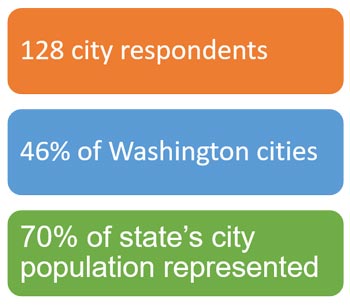
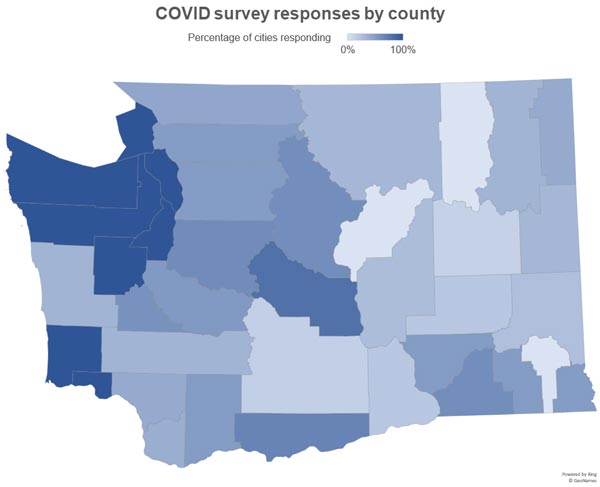
What we found
The vast majority of cities have incurred expenses from the COVID-19 pandemic and resulting economic slowdown.
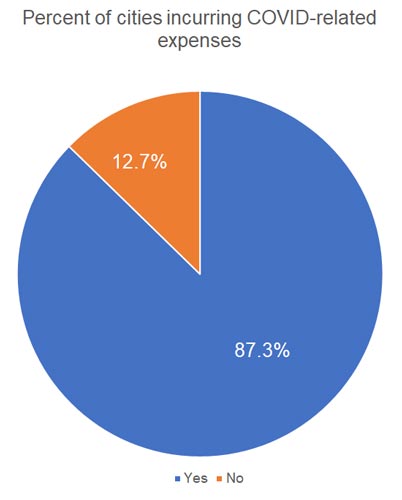
Almost 90% of cities are projecting immediate revenue losses due to COVID-19.
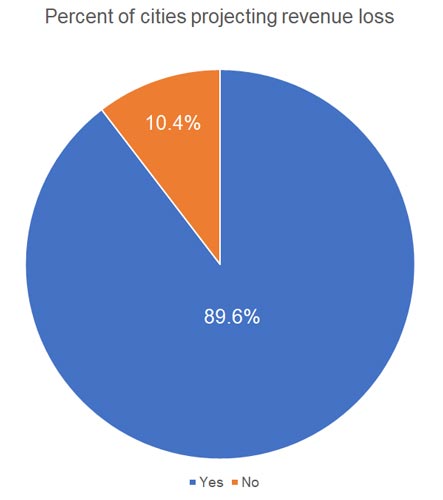
Cities are home to thousands of businesses and receive local sales tax revenue from retail sales, which dipped significantly during the economic shutdown.
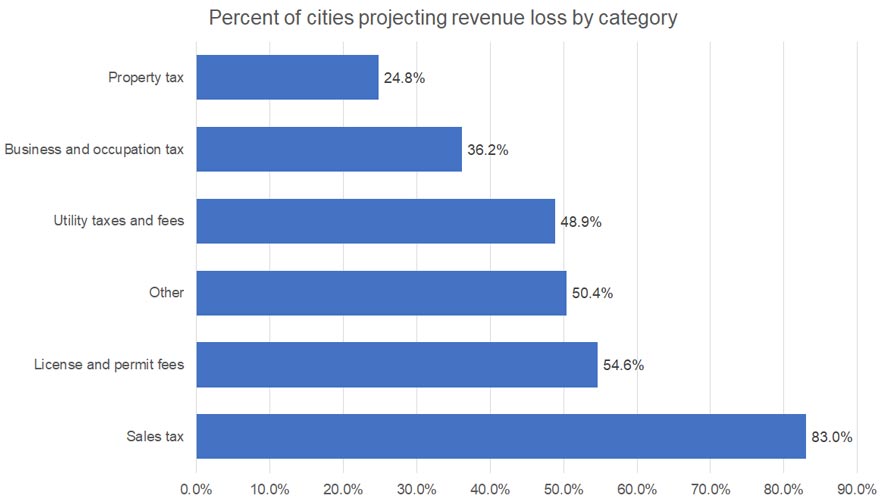
“We are a tourist town. The loss of sales tax will be significant with the devastation of that industry. We feel prepared to weather this storm in 2020 but believe the slowdown in tourism could affect our budget well into 2021 and beyond.”
City budgets and finances
Almost 90% of cities predict they will lose more than 5% in total revenue and cities anticipate these trends carrying into 2021.
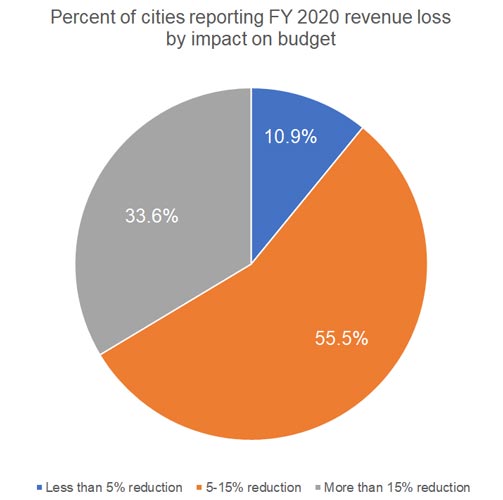
In total numbers, the projected revenue losses in cities are staggering. Cities in Washington are expecting to lose anywhere from nearly $300 million to just over $700 million this fiscal year.
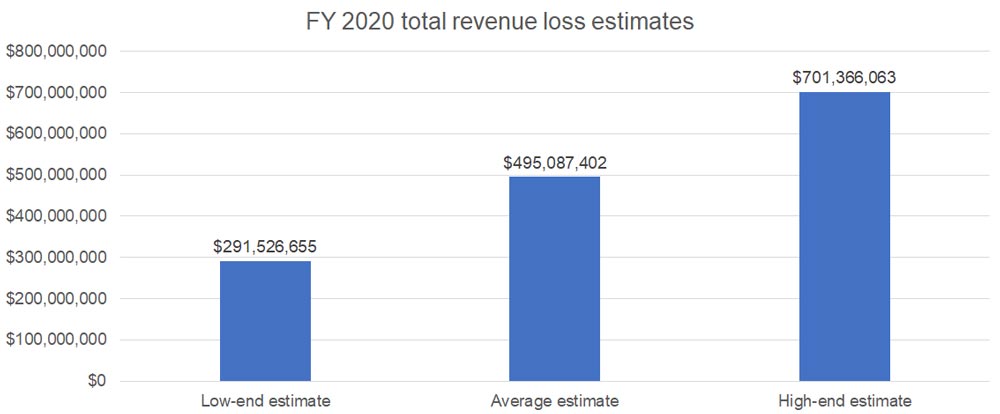
“The loss of revenues across the board will be the biggest impact. I suspect there are a few businesses that will not be able to weather this storm. I am also concerned about the mental health of individuals during this crisis.”
COVID-19 expenses mount in cities
Of the 87% of cities that reported COVID-related expenses, most are incurring expenses across many departments, covering a wide array of services.
Cities are spending more for things like:




- Personal Protective Equipment (PPE)
- Hazard pay and time off
- Overtime
- Quarantine housing
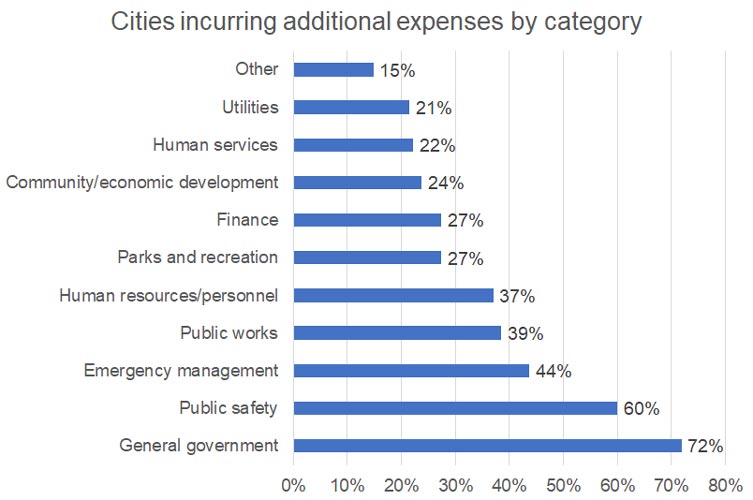
Cities respond by reducing spending
Cities are forced to make decisions between using operating/capital reserves, reducing programs or staff, and cutting services. These actions will likely affect cities and their residents for many years.
“We will struggle with the loss of revenue and this will ultimately impact our ability to provide general city services. We'd like to see an effort to provide cities with the funding they need to continue to provide robust services.”
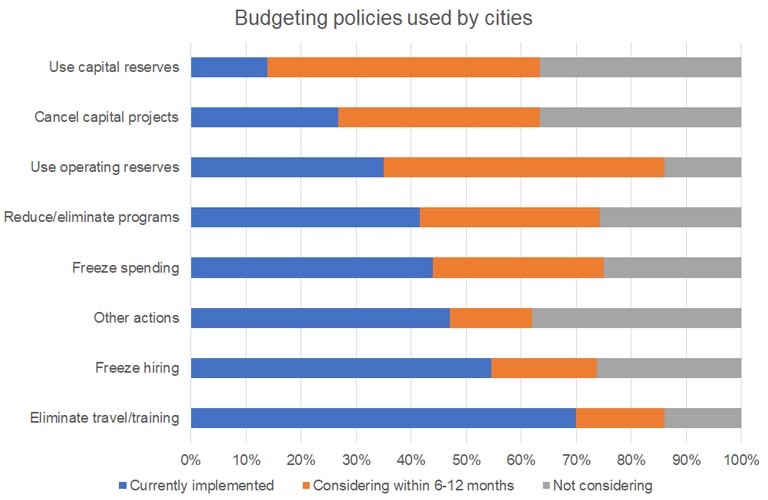
Human resources in cities
Cities are people-intensive operations. Many of the services we count on from our cities are carried out by experienced staff. Unfortunately, as a cost-saving measure, many cities have furloughed or reduced staff to fill budget gaps.
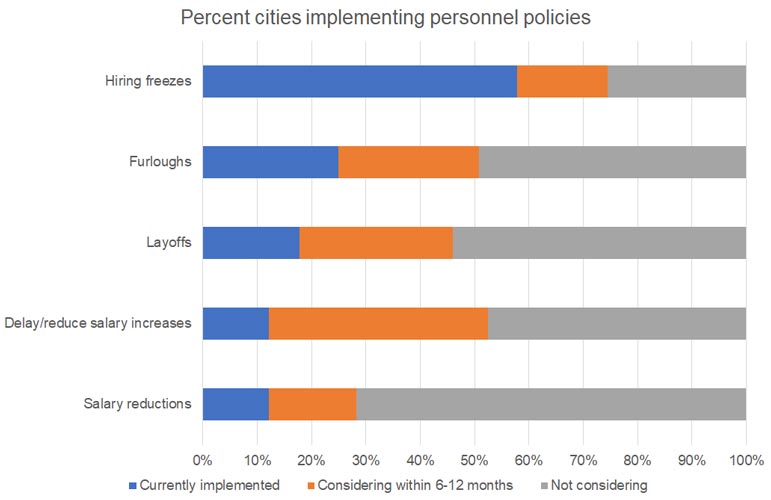
911 calls for service
Of the cities that reported changes in calls for emergency service, half reported increasing calls for emergency services, while the other half saw a decrease in calls.
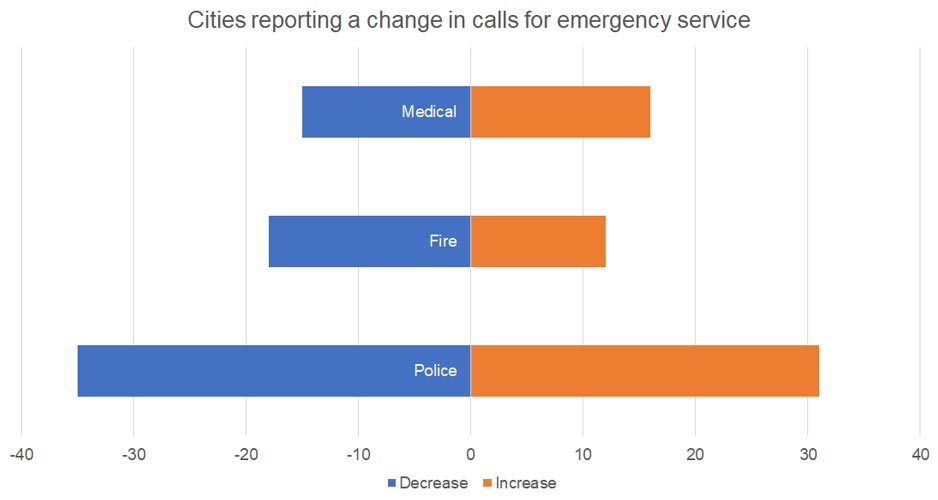
Vulnerable residents
Cities are constantly working to meet the needs of the most vulnerable during this public health crisis.
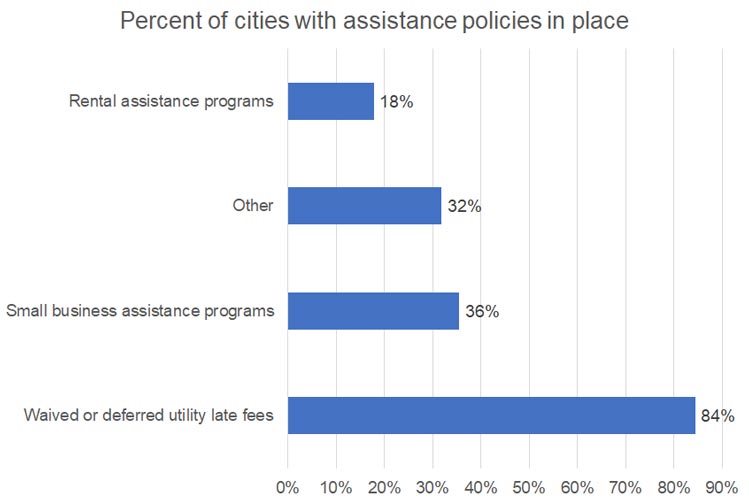
Some cities have stepped up to create assistance policies that help their homeless populations who face even greater dangers during the pandemic.
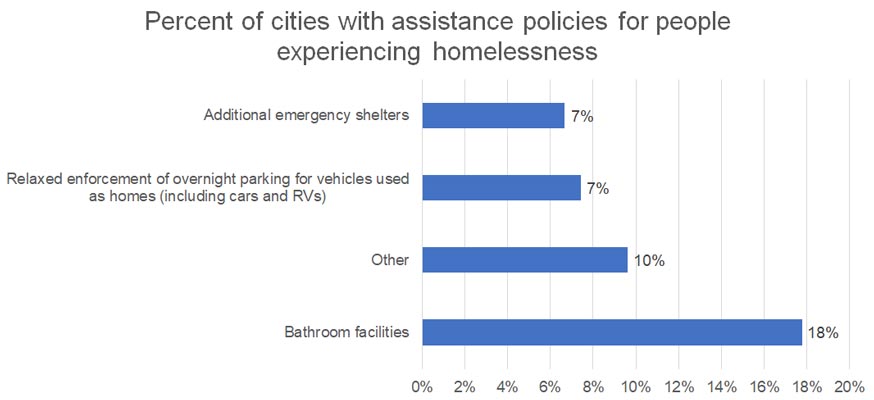
“While the impacts of COVID-19 are devastating for our community and our economy right now, there is significant concern that once the emergency has passed, emergency funding will dry up. Unfortunately, the economy is unlikely to bounce back quickly, and we’re looking at large revenue gaps in 2021-2022 with no clear path for relief.”
Conclusion
This survey tells us that city budgets suffered during the early months of the pandemic, and that’s only the beginning. There is significant uncertainty of the long-term impact of COVID-19 and the length of the resulting recession. Cities continue to grapple with how the pandemic impacts their ability to maintain essential services amid falling revenue.
City leaders should take some time this summer to reach out to legislators. AWC is hearing about the potential for a special legislative session. If one occurs, it will be critical for cities to have an open line of communication with legislators as they make difficult budget decisions that could impact cities even more. Ask your legislators to provide local governments with new revenues and increased fiscal flexibility so that cities can continue to provide essential services and ensure a smooth economic recovery. View our full special session city legislative priorities for more information.
Through all this uncertainty, cities are taking action to maintain and improve the quality of life for residents during the pandemic. We encourage cities to reach out to neighboring jurisdictions to share information and help each other work through this ongoing crisis. Working together as city leaders will help communities emerge from this crisis stronger and more resilient than ever.
Full report
If you would like to explore the data further, read the full report. Please send any questions or comments regarding the data to Logan Bahr or Maggie Douglas.